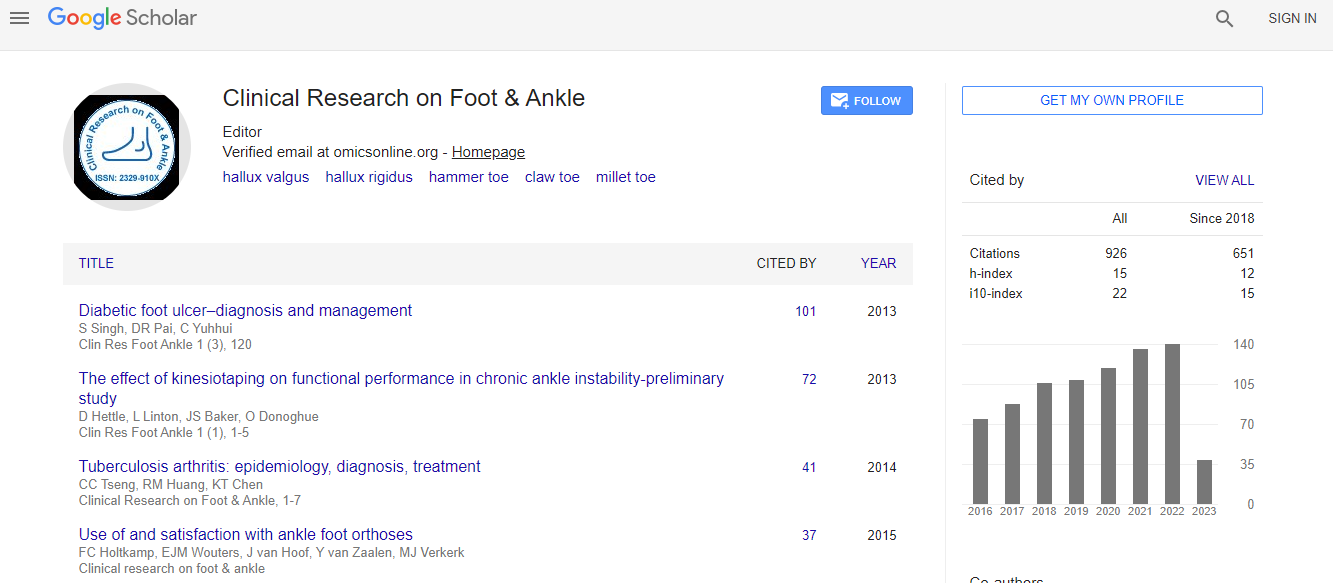Review Article
Diabetic Foot Infections: Treatment and Cure
| Javier La Fontaine1* and Lawrence A Lavery2 | ||
| 1University of Texas Southwestern Medical Center, Department of Plastic Surgery Dallas, Texas, USA | ||
| 2Director of Clinical Research, University of Texas Southwestern Medical Center, Department of Plastic Surgery, Dallas, Texas, USA | ||
| Corresponding Author : | Javier La Fontaine University of Texas Southwestern Medical Center Department of Plastic Surgery, Dallas, Texas ,USA Tel: 214-648-7284 E-mail: javierlafontaine@gmail.com |
|
| Received November 11, 2013; Accepted January 13, 2014; Published January 19, 2014 | ||
| Citation: Fontaine JL, Lavery LA, (2014) Diabetic Foot Infections: Treatment and Cure. Clin Res Foot Ankle S3:003. doi: 10.4172/2329-910X.S3-003 | ||
| Copyright: © 2014 Fontaine JL, et al. This is an open-access article distributed under the terms of the Creative Commons Attribution License, which permits unrestricted use, distribution, and reproduction in any medium, provided the original author and source are credited. | ||
Related article at Pubmed Pubmed  Scholar Google Scholar Google |
||
Abstract
Diabetic foot complications are common, costly, and difficult to treat. Peripheral neuropathy, repetitive trauma, and peripheral vascular disease are common reasons that lead to ulcers, infection, and hospitalization. Individuals with diabetes presenting with foot infection require optimal medical and surgical management to accomplish limb salvage and prevent amputation; aggressive short-term and meticulous long-term care plans are required. Multiple classification systems have been recommended to ease the understanding and the management of these infections. Multi-disciplinary approach is the mainstay for a successful management. Such teams typically include multiple medical, surgical, and nursing specialties across a variety of public and private health care systems. This review is an overview in how to approach to the diabetic foot infection with emphasis is soft tissue infection with medical and surgical approach.

 Spanish
Spanish  Chinese
Chinese  Russian
Russian  German
German  French
French  Japanese
Japanese  Portuguese
Portuguese  Hindi
Hindi 
